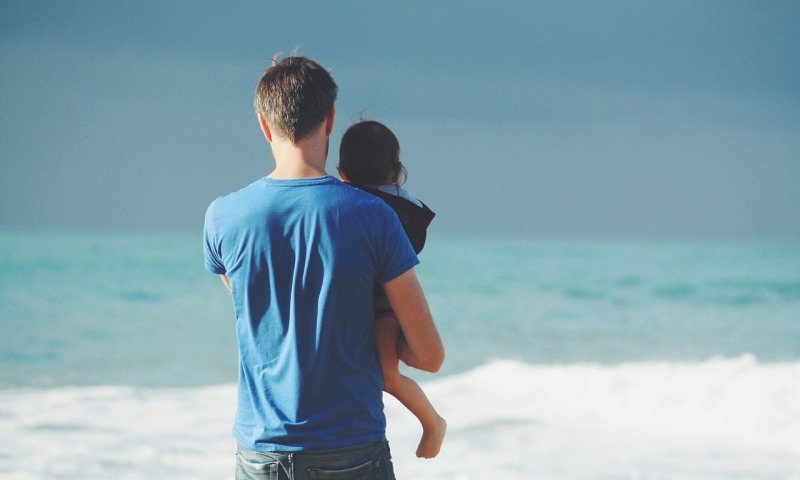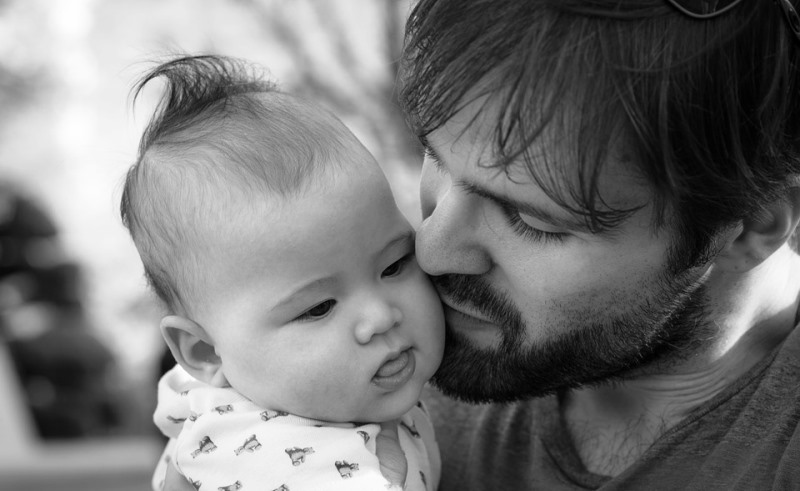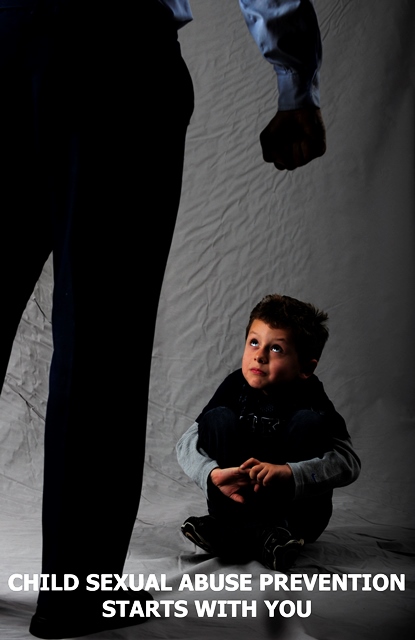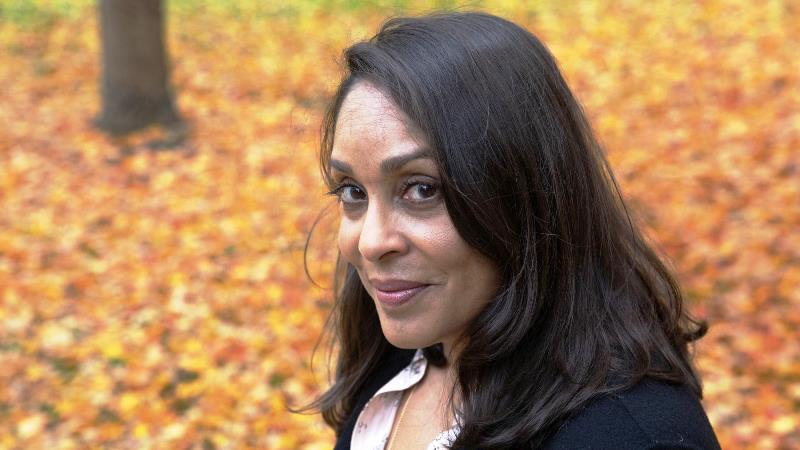When I watched the movie ‘Spotlight’ last year, I was sickened and scared as I saw how people we trust our kids with can abuse them in a manner that will scar them for their whole lives. It isn’t that I had no clue about child sexual abuse before that; but it was very human of me to assume that something as frightening as this happens, but will never happen to my family; a cozy lie we try to comfort ourselves with, a lie that helps us survive life, a lie, which also, unfortunately, emboldens sexual predators. We avoid talking about child sexual abuse, because it is too damn hard, but we NEED to, or else we will give so much power to those words, that it will become easier for the harassers, the monsters, to hide behind those words.

Image source: Google, copyright-free image, under Creative Commons License
We need to stop pulling the covers over our heads and drawing the blinders around our eyes. We need to learn and then talk about signs of abuse to prevent them from occurring again.
Suggested read: #MaybeHeDoesntHitYou Sheds Light On The Dark Reality Of Emotional Abuse
We need to empower our kids by enlightening ourselves; we need to read tips that will keep our children safe, and share those tips with as many people as we can. Here are a few to get you started:
Tips on how to protect kids from sexual predators
1. Talk to your children

Image source: Google, copyright-free image, under Creative Commons License
I am not asking you to scare your kids, but you need to make them aware. You can begin by telling them about the difference between what the appropriate way of touching is and what is inappropriate. Though this seems like something very simple, it is very effective in keeping kids safe from pedophiles.
You need to teach your kid, as early as three years of age, which parts of their body are private, and shouldn’t be touched by anyone – not an uncle, not an aunt, nor a cousin – of any gender.
2. When you start “the Talk,” start simple
Pedophilia is more about abuse than actual intercourse. So you need not talk to your child about the idea of sex. All you need to tell your child is that the parts that are covered by their inner garments or their bathing suit are private, and should not be allowed to be touched by anyone apart from Mommy, Daddy or the caregiver, except while they are giving them a bath. Tell them that even the doctor is allowed to touch them there, only when Mommy or Daddy is in the room with them.
You should not scare the child by telling him or her how bad the world around them is, or how unsafe they are with some people who do bad things. Rather, try and explain in as simple terms as you can, that they need to be aware of their surroundings.
3. While talking about private parts, you should use the right terms
Do not use made up names while referring to the private parts. According to the author of Keeping Them Safe: Protecting Children from Sexual Predators and Evil in Our Midst: Protecting Children from Sexual Predators, Sharon W. Doty,
“It makes kids think that there is something weird or shameful about their bodies, and they’ll be less likely to tell you if someone touches them.”
So when you talk about private parts, say penis, or vulva or vagina and breasts rather than using euphemisms.
4. A pedophile is not necessarily a stranger

Image source: Google, copyright-free image, under Creative Commons License
Generally, we warn our kids about how dangerous strangers can be, but what about the predators who are related to us? They do not cease to be sexual abusers when it comes to the kids they are related to. Moreover, they find it safer to abuse a kid they know, as that protects them from being identified as a harasser.
According to statistics, about 90 per cent of sexual abuse kids experience abuse by someone they know very well, and not a stranger.
Char Rivette, who is the executive director of Chicago Children’s Advocacy Center, says,
“Abduction is a lesser concern. You have to worry more about who your child spends time with on a daily basis.”
Suggested read: Yana Mazurkevich Creates Powerful Sexual Assault Photo Series After Brock Turner’s Jail Release
5. Secrets can be dangerous
Children are manipulated by child sex abusers who molest them through secrets. Rivette says that the molesters will tell the kids that this is ‘our little secret.’ They will warn the kids saying,
“You can’t tell your mom because she’ll be very mad at you.”
That is why you need to tell your kid that if any adult asks them to keep secrets, they should tell you about it immediately. Also, you need to stop keeping secrets with your kids, as that can confuse them. When you stop keeping secrets with them, it will be easier for you to explain to them that no grown-ups are allowed to keep secrets with them either.
6. Trust your kid
You need to build a relationship with your child that is based on trust and faith. You need to believe them instead of continuously questioning what they tell you. If you keep doubting what they say, then they will become reluctant to share such incidents with you.
When you explain to your child what is the appropriate way of touching and what is not, and that they should come to you if someone inappropriately touches them, you also need to tell them that you will believe them and that you will not be mad.
Now, let us talk about the warning signs that hint at sexual abuse
Risk factors for abuse
Being suspicious of every adult will only help in wrecking your kid’s childhood and making them adults with major trust issues. So it is better to know the warning signs and identify them when they stare at you. Yes, sexual abusers follow a pattern, a pattern we are going to discuss with you now.
A few red flags you need to be wary of, include:
- People/relatives who like spending more time with kids than with friends their own age
- Lets the kid do all the things that the parents have prohibited
- Uses words like sexy to describe children
- Talks about kids’ private parts in an obscene manner
- Talks a lot about the sexual activities of kids
- Watches/forwards child pornography
Kids spend a lot of time with their teachers or private tutors. So you need to make sure that any of these people do not demonstrate one/all of the warning signs mentioned above. You also need to be wary of your kid being pulled out as “special”. According to Rivette,
“Perpetrators groom kids by singling them out and making them feel special.”
So if your kid’s counselor or teacher pulls him or her out as special or someone who possesses wonderful talents, which makes him or her superior to the other kids, then that could be a major warning sign.

Image source: Google, copyright-free image, under Creative Commons License
After the abuser singles the kid out, he or she might suggest private tutoring time “to help get the best out of your kid”. You need to look at this as a sign of sexual abuse. This might be the perpetrator’s attempt to get the kid alone. You need to step in right then, and say, “Thank you, but no thank you” to the offer.
You cannot overlook family history, according to Rivette. He says,
“Abuse tends to be intergenerational. If you have a history of sexual abuse in your family, your child may be more likely to be a victim.”
Sleepovers should not be taken lightly. If your kid has a sleepover planned at his or her friend’s place, you need to be sure about the parents and other people who live in that house, where your kid is about to spend the night. According to Rivette,
“Don’t allow a sleepover unless you know the family well and have been to their home many times. Ask exactly who will be there and what they will be doing. If anything strikes you as odd, trust your instinct.”
You should meet every single person your child works with, whether it is the counsellor at camp, or an instructor who works with your kid on a daily basis. If there is a program your kid is about to be a part of, you should ask the director of the program to familiarize you with all the staff. This way, you will send the potential abuser a message that you are alert and will take action if you smell anything fishy. According to Rivette,
“Sex abusers don’t choose kids whose parents are very involved.”
These are a few things you can do to protect your child from child sexual abuse. However, if you suspect abuse (and we sincerely hope there is nothing to it), you can use the following techniques to be sure, and to take action against the crime.
Begin by asking questions to encourage your kid to open up. You can ask questions like, “What do you like best about school?” and “What do you not like about school or about so and so person (the person that you suspect)?” You can make up some examples involving you, and ask your kid something like, “Once, I did something that I didn’t tell my parents because I thought they would scold me. But when I finally told them, they made it all okay. Is there anything you want to tell me?”
You might also observe some changes in your child, changes like hyperawareness of sexual activity or issues or knowledge beyond their age, maybe a kid using dirty words for body parts, words that they have never used before. You might even observe that the kid has become more regressive and is acting younger than his or her age. They might withdraw from social interaction; they might suddenly become very fearful of the dark and experience frequent nightmares.
Suggested read: “My Role Models Are The Children I Work With”: #NLTTalks With Dr. Priya Virmani, The Entrepreneur Behind Paint Our World
Once you see these signs, you need to act quickly. You should immediately contact your state’s protective services hotline designed for kids. You should not confront the suspect yourself, as this will give him or her the time to build a defense.
We really hope this guide is helpful. If you have any questions or queries for us, then please leave them in the comment section. Our experts will get back to you immediately.
To receive our newsletter in your inbox, do sign up for the daily newsletter today. See you again tomorrow. 
Featured image source: Google, copyright-free image, under Creative Commons License













